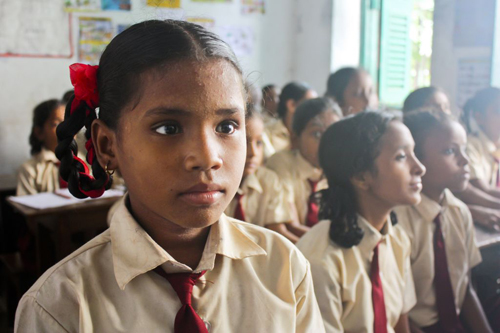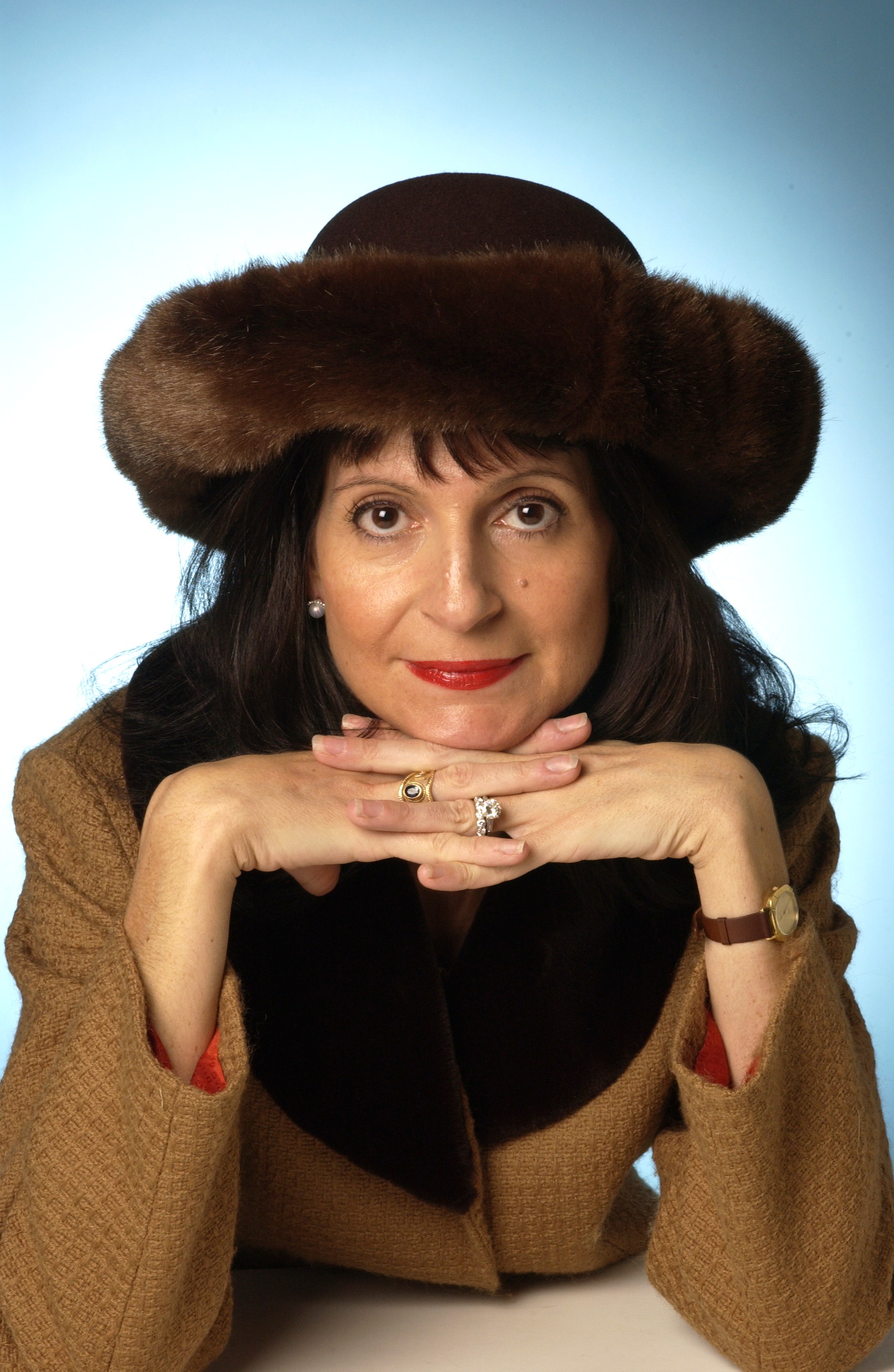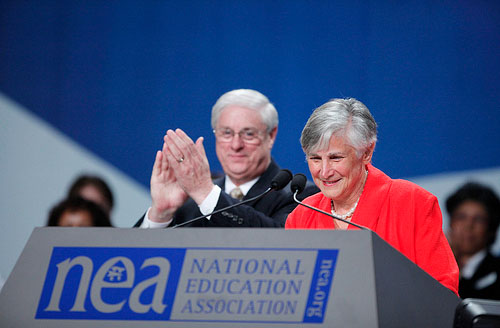What students want — and what world leaders can and must do better!
Mark this day with a white stone — Juillet 12, 2013. The venue: L'Organisation des Nations Unies. The Event: Malala Yousafzai, the fearless education rights campaigner from Pakistan shot by extremists on her way to school, takes center stage to celebrate her birthday and together with her fellow student campaigners, leads us in a global discussion of the world’s major education issues. The birthday wish: That all diplomats in the audience use this celebration for renewal of their commitment and match their rhetoric for education reform with real actions in each of their own countries. All countries can and must do more to help the world’s children achieve a relevant, quality 21st century education. Let me share some of my reflections from listening to voices around the world on the diverse and contrasting education issues nations face today.
Education is the greatest armament in the battle on poverty, maladie, brutality and prejudice. Providing education for children in the emerging markets is both vital and relatively cheap. Si, starting today, what more can we do to get 31 million girls and 26 million boys into school and achieve the Millenium Development Goal to boost access to education worldwide?
Extremists tremble at the prospect of children with knowledge. The empowerment of students today is the single most potent solution to tomorrow’s peace. What more can Nigerian leaders do to end the torchings and brutal murders of exemplary school children by Boko Haram (name translates as “western education is sinful”), which has been blamed for killing more than 1600 victims since 2010?
If India enrolled 1 percent more girls in secondary school, their GDP would rise by $5.5 milliard. Les filles avec huit années d'enseignement sont quatre fois moins susceptibles d'être mariés que les enfants. Un enfant né d'une mère alphabétisée 50 pour cent plus susceptibles de survivre après l'âge de cinq. Une fille avec une année supplémentaire d'éducation peut gagner 20 pour cent de plus comme un adulte, et mères instruites sont plus de deux fois plus susceptibles d'envoyer leurs enfants à l'école. Nous comprenons comment et pourquoi l'éducation des filles fonctionne grâce aux voix des neuf filles remarquables du Pérou, Haïti, Egypte, Sierra Leone, Afghanistan, Ethiopie, Inde, Népal et le Cambodge dans Richard Robbins’ powerful film, fille Rising. What more can their countries do to support them?
Chilean students cry out that free public education is a universal human right and is the most effective way to address the severe social inequalities in a country where the rich go to the best universities and the poor go to third class universities. What more can Chile’s leadership do to support an education system with deep divides along class lines (one of the world’s lowest levels of public funding for higher education, some of the longest degrees, no comprehensive system of student grants or subsidized loans)?
D'un côté, society says I must get an education. On the other, society isn’t going to pay for it if I cannot. Shouldn’t going to University depend on ability versus ability to pay? Autour du monde, students have joined forces in the face of surging costs in higher education and the lack of accessibility. They also seek the answer to this question, “Will the enormous investment in time and money I am being asked to make in my education pay off?” Aux Etats-Unis, the student loan debt is more than $1 billion (60 percent of students must borrow to help cover costs according to the Chronicle of Higher Education), making it the highest form of personal debt in this country. In Great Britain, the National Campaign Against Fees and Cuts protests government’s plans for a market-driven higher education system, rising tuition fees and a growing number of students being priced out of obtaining a degree. L'année dernière, we have seen similar protests from dedicated student organizations in Quebec, Nouvelle-Zélande, Guatemala, Spain and Italy, to mention but a few. What more can the governments of these countries do to find solutions to student needs?
To the education leaders in the United Nations audience for Malala and her fellow students, I say: You need a game changer that will address the variety of big picture issues that today’s students face. You need to be more innovative in terms of finding solutions to what is becoming the world’s biggest problem. Around the world today, students are wide awake. They are many and they are united by one struggle — they want education to be accessible, affordable and relevant to their lives. They will continue to mobilize and you can be sure that on this issue, they are not going to back down.
Dans La Recherche globale pour l'éducation, joindre à moi et leaders d'opinion de renommée mondiale dont Sir Michael Barber (Royaume-Uni), Dr. Michael Bloquer (États-Unis), Dr. Leon Botstein (États-Unis), Professeur Clay Christensen (États-Unis), Dr. Linda Darling-Hammond (États-Unis), Dr. Madhav Chavan (Inde), Le professeur Michael Fullan (Canada), Professeur Howard Gardner (États-Unis), Professeur Andy Hargreaves (États-Unis), Professeur Yvonne Hellman (Pays-Bas), Professeur Kristin Helstad (Norvège), Jean Hendrickson (États-Unis), Professeur Rose Hipkins (Nouvelle-Zélande), Professeur Cornelia Hoogland (Canada), Honorable Jeff Johnson (Canada), Mme. Chantal Kaufmann (Belgique), Dr. Eija Kauppinen (Finlande), Le secrétaire d'Etat Tapio Kosunen (Finlande), Professor Dominique Lafontaine (Belgique), Professeur Hugh Lauder (Royaume-Uni), Professeur Ben Levin (Canada), Seigneur Ken Macdonald (Royaume-Uni), Professeur Barry McGaw (Australie), Shiv Nadar (Inde), Professeur R. Natarajan (Inde), Dr. PAK NG (Singapour), Dr. Denise Pape (États-Unis), Sridhar Rajagopalan (Inde), Dr. Diane Ravitch (États-Unis), Richard Wilson Riley (États-Unis), Sir Ken Robinson (Royaume-Uni), Professeur Pasi Sahlberg (Finlande), Andreas Schleicher (PISA, OCDE), Dr. Anthony Seldon (Royaume-Uni), Dr. David Shaffer (États-Unis), Dr. Kirsten immersive, (Norvège), Chancelier Stephen Spahn (États-Unis), Yves Thézé (Lycee Francais U.S.), Professeur Charles Ungerleider (Canada), Professeur Tony Wagner (États-Unis), Sir David Watson (Royaume-Uni), Professeur Dylan Wiliam (Royaume-Uni), Dr. Mark Wormald (Royaume-Uni), Professeur Theo Wubbels (Pays-Bas), Professeur Michael Young (Royaume-Uni), et le professeur Zhang Minxuan (Chine) alors qu'ils explorent les grandes questions d'éducation de l'image que toutes les nations doivent faire face aujourd'hui. La recherche globale pour l'éducation communautaire page
C. M. Rubin est l'auteur de deux séries en ligne largement lecture pour lequel elle a reçu une 2011 Upton Sinclair prix, “La recherche globale pour l'éducation” et “Comment allons-nous savoir?” Elle est également l'auteur de trois livres à succès, Y compris The Real Alice au pays des merveilles.





Commentaires récents